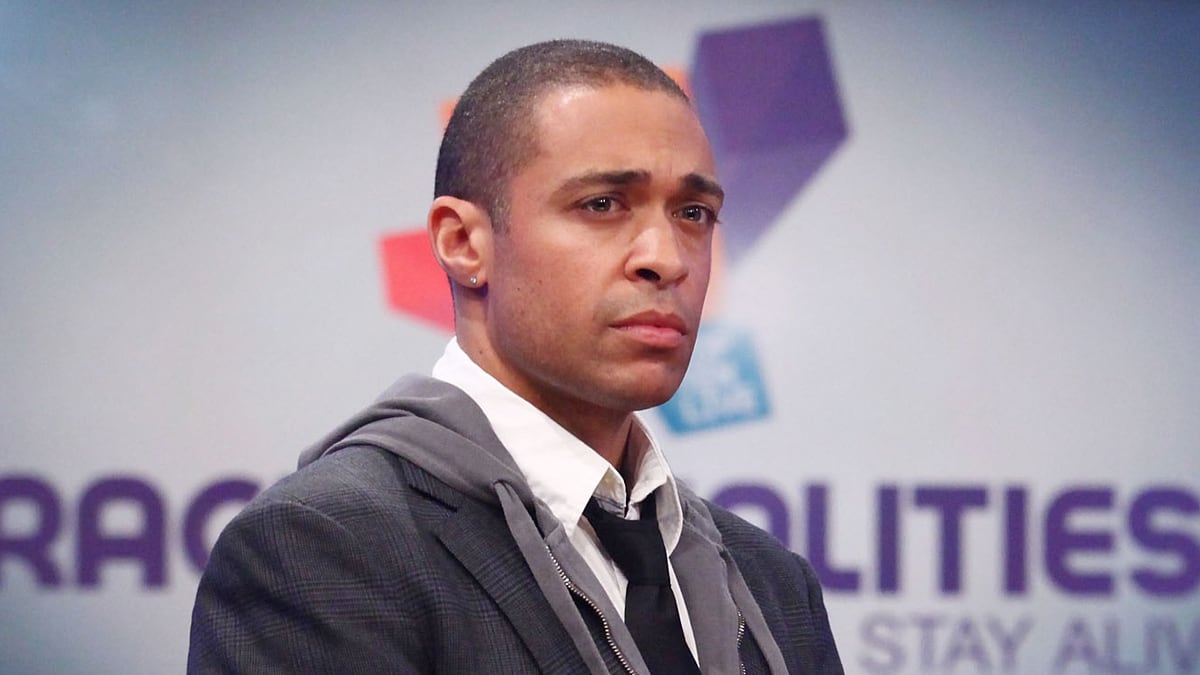T.J. Holmes was looking forward to a leisurely day on the golf course a few weeks ago when a pair of flashing lights from a police car turned his day inside out.
The former CNN host was driving his luxury car from his home in Atlanta to the golf course at around 9 a.m. when an Atlanta Metro police officer decided to pull him over. Holmes, who served as a weekend anchor at CNN for nearly five years until last year, says he was stunned when the police appeared behind him, sirens blaring. The 34-year-old was stunned mainly because he says he hadn’t been speeding and was sure he hadn’t committed any other traffic offense. Holmes only became angry after it became obvious to him that the police officer was just as unsure as he was as to the reason for the stop.
“He said he just wanted to make sure I had insurance for my car,” recalls Holmes, sitting at the Roosevelt Hotel in Los Angeles. “But he was clearly struggling to explain what exactly caused him to pull me over in the first place. He was tripping over his words the entire time. As a rule, the police don’t just stop cars to check insurance.’’
Holmes was so irritated by the incident that he decided to tweet about it shortly after—and in doing so used language he now says he regrets. On July 30, Holmes announced to his more than 50,000 followers, “Driving while black ain’t no joke.” He added shortly afterward, “This is a damn shame. Officer is literally struggling over his words to explain why he stopped me.”
Holmes the host of the new show Don’t Sleep on the BET network (set to debut in October) says he then went about his day as usual at a local golf course with little thought to the serious commotion his Twitter messages would soon kick up. After about an hour on the links, Holmes said he glanced at his iPhone and saw hundreds of outraged responses to his experiences—from very different perspectives.
“I think saying the term ‘driving while black’ just set off everyone and raised the temperature on this situation to another level,” says Holmes. “Everyone immediately became defensive and no one was really listening to what was being said. If I would have worded it differently I think the discussion may have been different. Certain terms just stop people from truly listening to what’s being said, and that doesn’t help the conversation or move it forward in a way that helps the issue or makes it better.”

Holmes said reactions varied from those who’d encountered similar circumstances to those furious that acts such as these continue to happen to those who had little sympathy or understanding for his plight.
“People got into their corners and just stayed there when talking about this type of racial issue,” says Holmes. “There was little middle ground, and that is what’s so frustrating to me because I’d hope to have a legitimate discussion about race and why these incidents are continuing to happen without a lot of anger or the pointing of fingers.”
Holmes said he accepted an invitation to appear on MSNBC shortly after the incident for that very same reason, to bring to attention a subject that happens far too often and to far too many people of color.
“I wanted to ask the police community around the country what it is we [black people] can do to help them understand who we are better so they don’t immediately assume the worst and don’t immediately view us in a certain way. How can we work together to change perceptions of one another on both sides of the aisle? It would be great to talk to the cop who stopped me and ask him, ‘Why did you pull me over?’ If he answers honestly, then we can talk calmly about how to make sure this doesn’t happen again to the next young black man.”
(The Atlanta Police Department declined to comment for this article. Holmes says he has accepted an invitation to visit the police station near where he was pulled over in an effort to start a dialogue about what happened that day.)
While Holmes quickly admits he regrets the language used to describe his police experience on Twitter, he’s not backing away from belief that the entire incident was racially motivated.
“I was a black man driving a fancy car with no care in the world that morning. That’s why I was pulled over and I stand by that. But I also stand by wanting everyone to learn from these kind of incidents as well,” says Holmes. “We have to learn or nothing changes and nothing gets better.’’
For now, Holmes has his hands quite full with the looming debut of his new nightly news show that debuts Oct. 1. The anchor says his new television home address will afford him the opportunity to deliver the top stories of the day with a bit of his own personality and social commentary mixed in as a filter. Don’t Sleep will offer African-Americans a chance to learn about the day’s biggest news events as well as hear different perspectives on how that news impacts the black community as whole.
“The show will report all the news, not just black or white news.” says Holmes. “The difference is we’ll break down how that overall news impacts African-Americans in every aspect. There are many stories like the Trayvon Martin story that can be discussed and viewed in so many different ways, and this show will do just that. It’s long overdue, and there is an audience who is very interested.”





